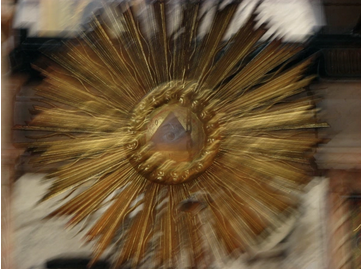What is Jungian Psychology?
Photo by Satya Byock
Carl Jung (1875-1961) was a pioneer of psychiatry and modern psychology. Trained as a medical doctor in Switzerland, his work with schizophrenic patients led him into an exploration of the stories and images expressed in states of delusion and illness, through the words, physical movements, and art of his patients. As a scholar too of religion and mythology, Jung began to see profound parallels between the expressions of his patients and stories from around the world with which his patients could not possibly have been familiar. It was from these early beginnings that Jung postulated the collective unconscious, an inherited aspect of each human experience.
Jungian Psychology, also known as Analytical Psychology, Complex Psychology, and as part of Depth Psychology, emphasizes the relationship and emerging dialogue between the conscious and the unconscious aspects of psyche. Jung postulated that the conscious mind, typically referred to as the ego gains form gradually through childhood out of the unconscious until it separates from the unconscious and believes itself to be autonomous. The dialogic relationship that can then develop again between the ego and the Self will often begin with a crisis or a trauma, but can lead to a profound, spiritual, and enriching life. A lack of relationship to the unconscious psyche is a common modern phenomenon and leads to loss of energy, disorientation, a variety of mental health and physical health problems. Neurotic expressions in personality are seen, for instance, as spiritual crises seeking renewed relationship with the enriching center of psyche. In addition to Jung's identification of the Collective Unconscious, he also coined the terms “synchronicity” as well as “extroversion” and “introversion” while laying the groundwork for the MBTI, popularized the term “archetype,” and significantly influenced the creation of Alcoholics Anonymous.
Jung’s work and theories have influenced countless artists, philosophers, psychologists, and writers since his time, though his name remains less known.
A Few Resources on Jungian Psychology
Analytical Psychology: its theory and practice, Carl Jung. A transcript of a seminar that Jung delivered, providing a readable, colloquial review of many of the concepts that underly Jung’s work.
Jung and the Story of our Time, Laurens Van Der Post. An exploration of Jung’s work and its relevance for a turbulent world, by South African writer, activist, and contemporary of Jung.
The Essential Jung, Anthony Storr (ed.). A selection of Jung’s writings on a variety of topics, is well organized and introduced.
Memories, Dreams, Reflections, Carl Jung. Considered to be Jung’s memoir, this book provides an insight into Jung’s personal development and the development of his theories, with beautiful explanation of their value for an individual life.

